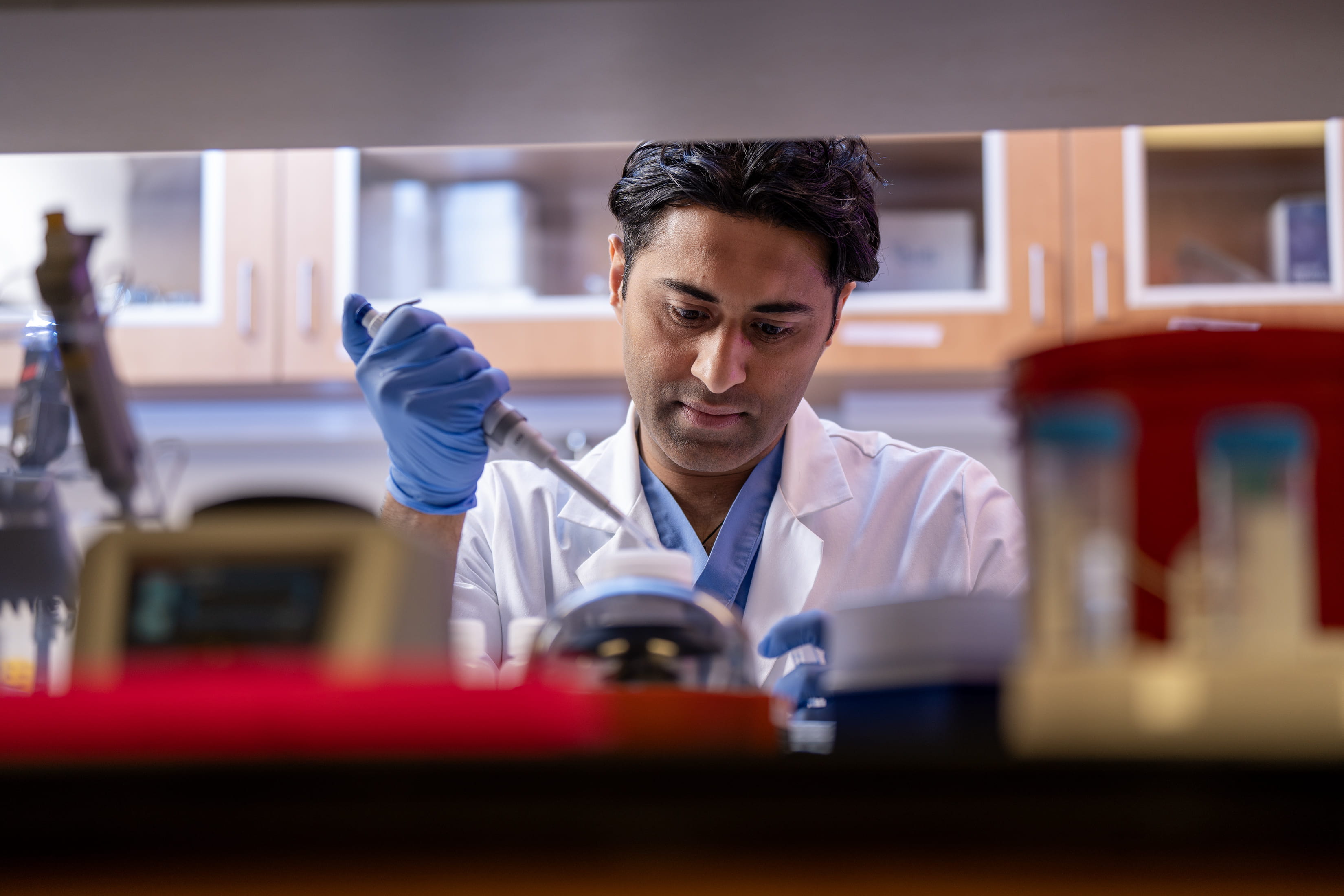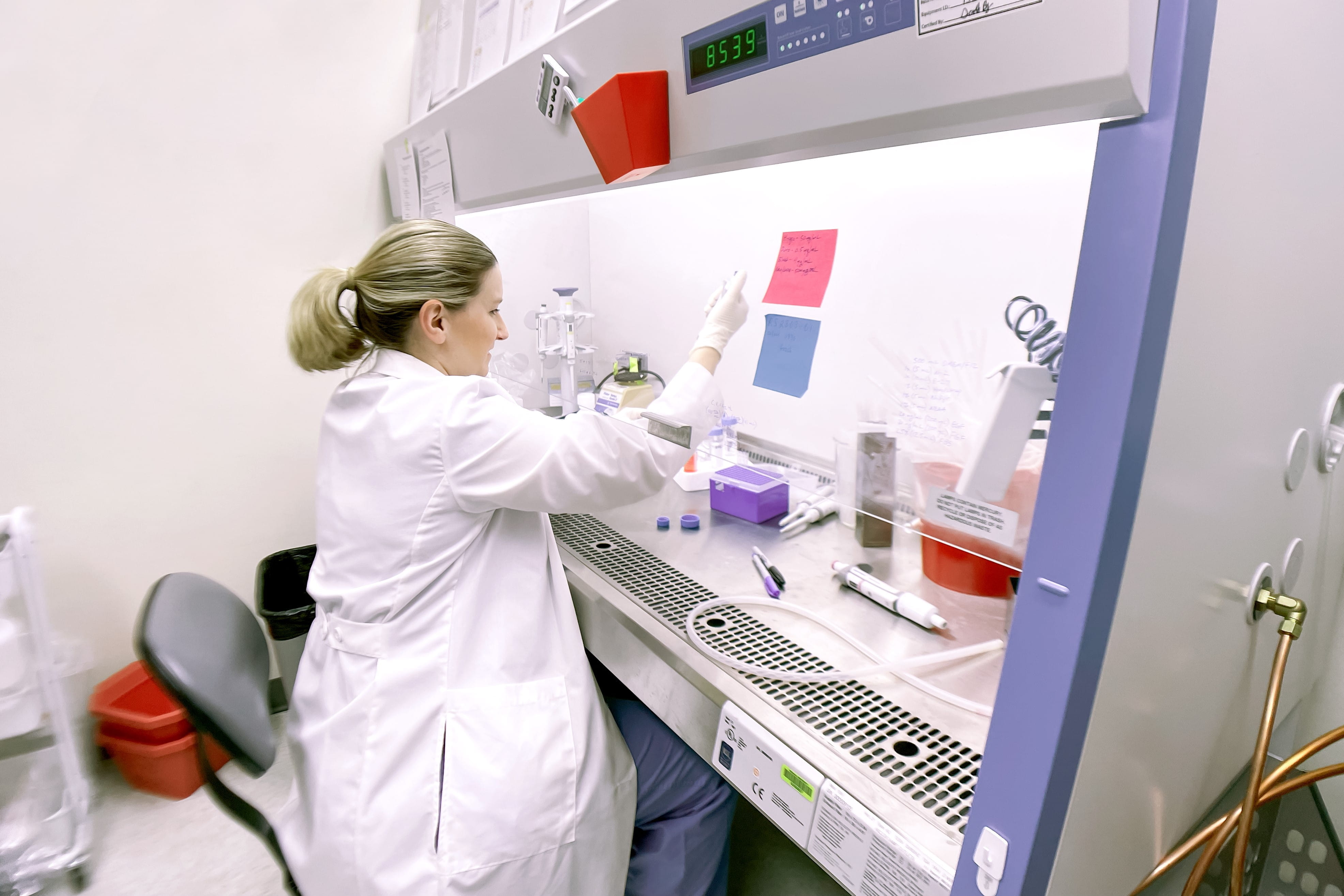With a diverse approach across investigators, faculty in the Department of Neurological Surgery at the Indiana University School of Medicine focus on aspects of injury and disease that can be translated from the bench to the bedside — with implications for clinical practice and the operating room. Their goal is to improve patient care through multifaceted and multidisciplinary approaches, including basic science, clinical studies, neural engineering, informatics and outcomes research. Projects include developing a new technique that may restore sensory loss after injury; developing a noninvasive brain stimulation technique to treat pain, traumatic brain injury, epilepsy, stroke, Parkinson’s disease and Alzheimer’s disease; successfully reprogramming glial cells in the central nervous system into new neurons that promote recovery after spinal cord injury and revealing an untapped potential to leverage these cell for regenerative medicine.
Clinicians work in concert with investigators at the Indiana Spinal Cord and Brain Injury Research Group (ISCBIRG), an integrated component of the Stark Neurosciences Research Institute. The group is comprised of a critical mass of key principal investigators who study the molecular mechanisms underlying spinal cord injury and traumatic brain injury. They work to develop novel repair strategies to promote neural reorganization and functional recovery in experimental models of these injuries. The long-term goal of these studies is to translate promising treatments from animal models to humans.
Faculty investigators also lead more than 20 clinical trials that specialize in neurosurgical clinical research of various disease states, such as hydrocephalus, epilepsy, cancers of the brain, traumatic brain injury and aneurysms. Many of these trials are conducted in collaboration with researchers across the country.




